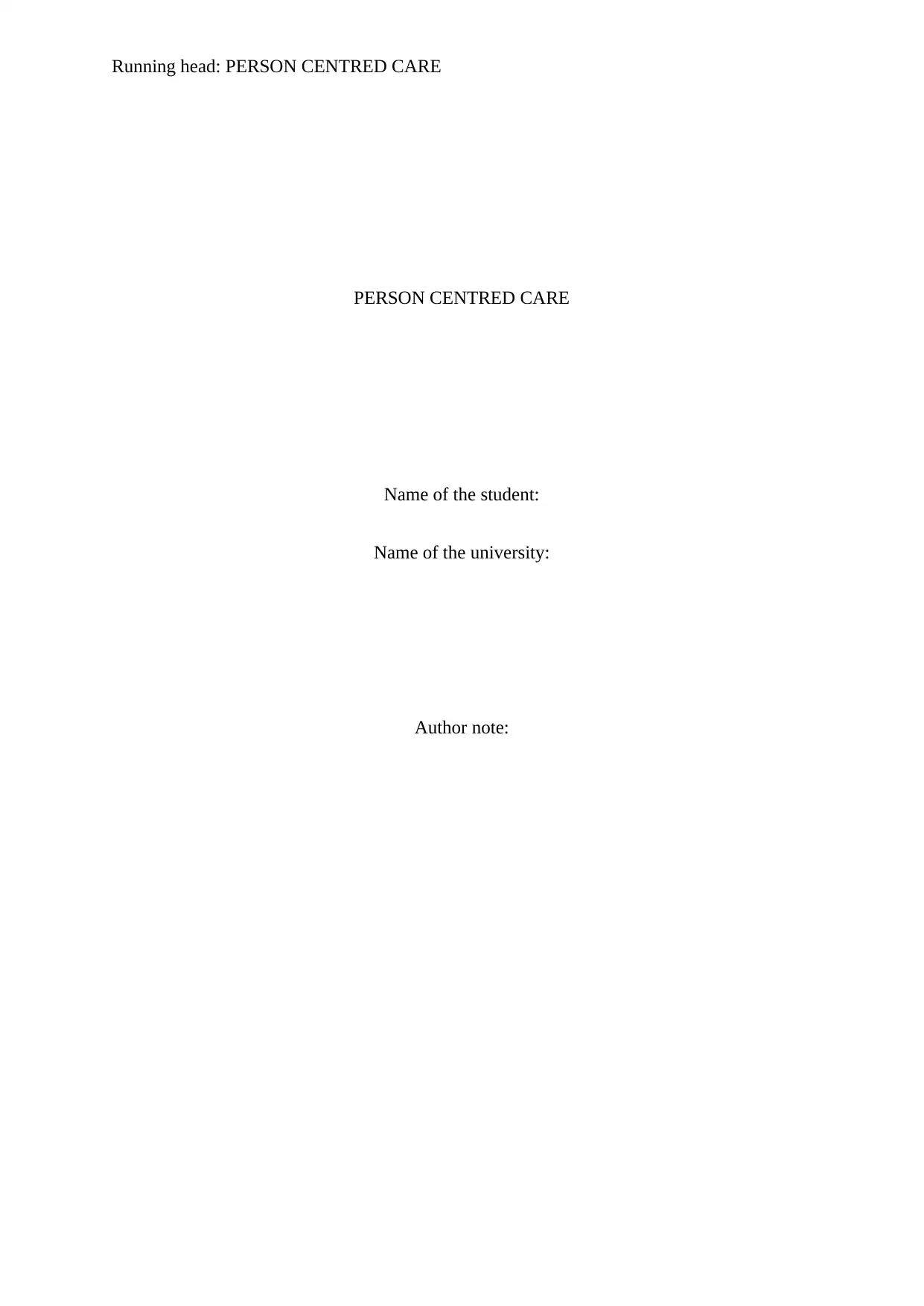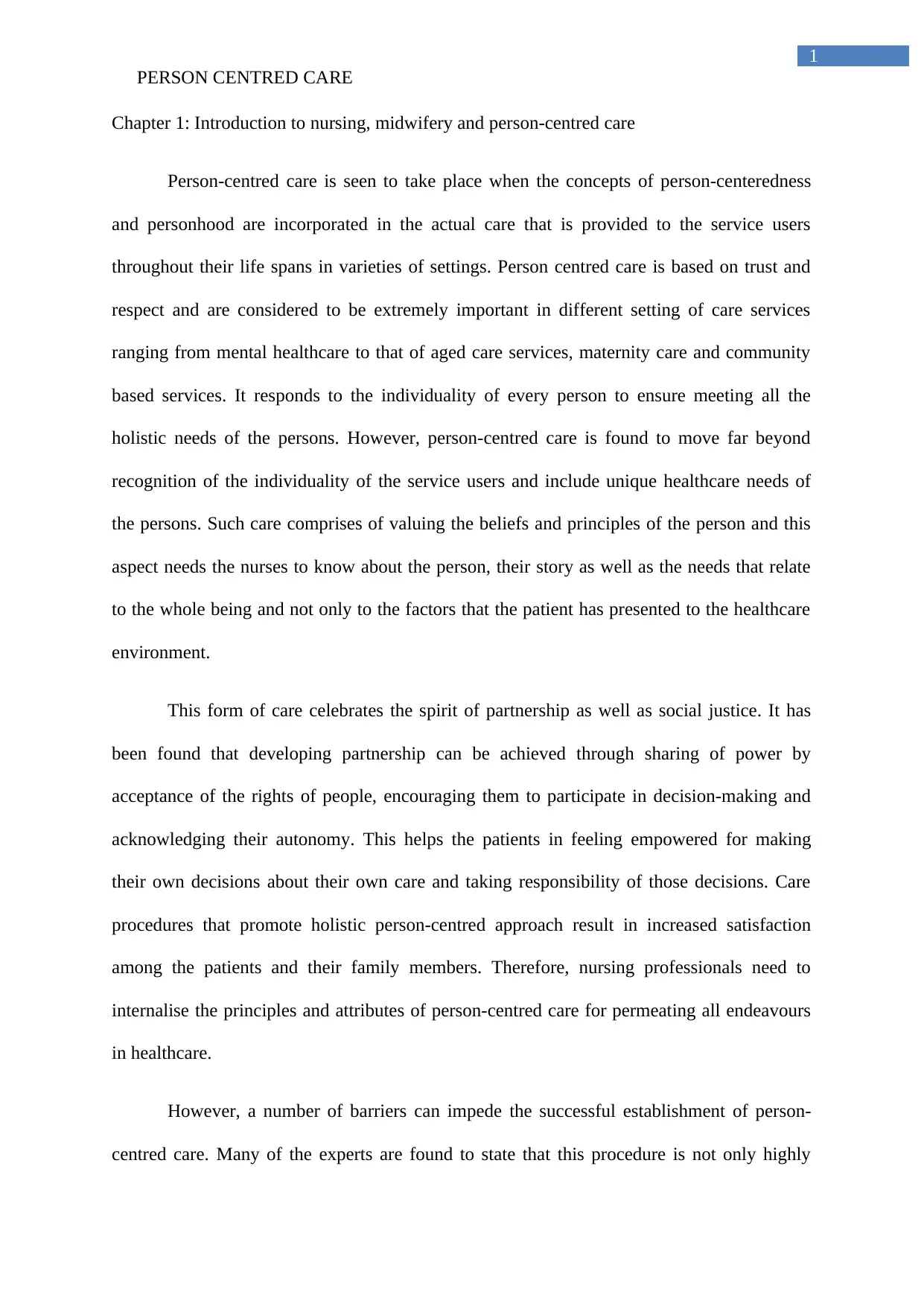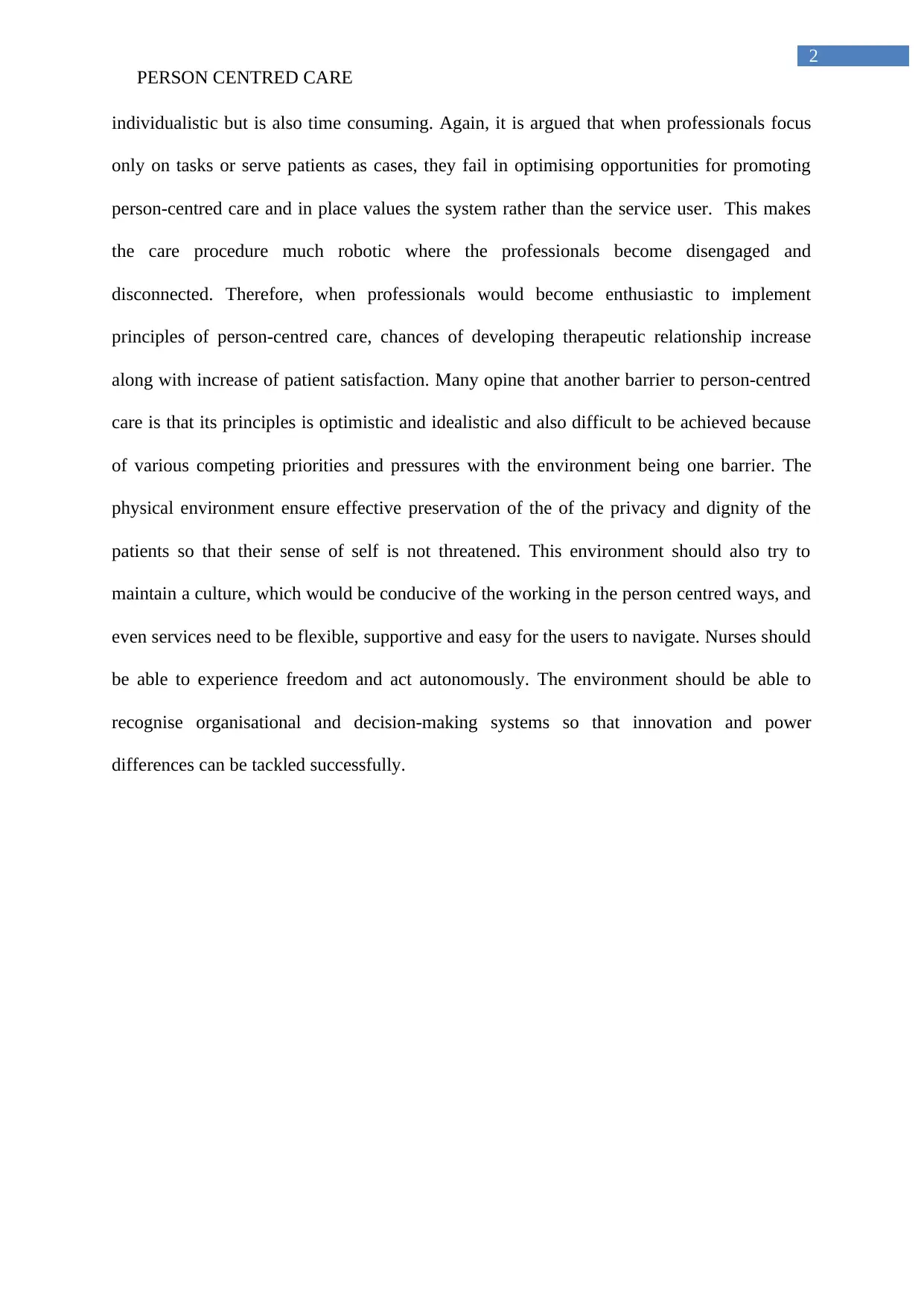The Essence of Person-Centred Care in Contemporary Nursing & Midwifery
VerifiedAdded on 2023/04/25
|3
|580
|356
Essay
AI Summary
This essay provides an overview of person-centred care within nursing and midwifery, emphasizing its importance in various healthcare settings. It defines person-centred care as an approach that integrates person-centeredness and personhood into the care provided, highlighting the significance of trust, respect, and individual attention to meet holistic needs. The essay discusses the benefits of this approach, including increased patient and family satisfaction, and the development of therapeutic relationships. It also addresses potential barriers to implementing person-centred care, such as time constraints, a focus on tasks rather than individuals, and environmental factors. The importance of creating a supportive physical environment that preserves patient dignity and fosters autonomy for nurses is also discussed.
1 out of 3









![[object Object]](/_next/static/media/star-bottom.7253800d.svg)